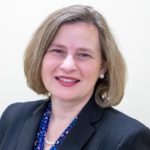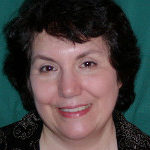Session Description
The purpose of this presentation is to describe the factors that are important in virtual collegial collaboration. In academia, collegial collaboration between colleagues is common and often mandated. In today’s world, especially with recent changes in academia driven by the COVID-19 pandemic, more faculty are working in different geographic locations from their colleagues. This distributed workforce must engage via home or other satellite locations (Poulsen & Ipsen, 2017) utilizing various technologies that support professional learning communities. Can we work collaboratively in a purely distance relationship? Successful group collaboration is driven by high expectations, shared goals, professionalism, and peer accountability. Such collaboration may be viewed as involving a nonlinear theory of change, with multiple factors influencing processes and outcomes. Factors impacting success include academic considerations (professional goals, disciplinary expertise), nonacademic issues (personal preferences, financial factors), and the development of a culture of trust and collective leadership. Practical strategies to implement such virtual collaboration are discussed, from the perspective of virtual teamwork in project planning and implementation, mentoring within a department, collective leadership, and the experiences of a purely virtual academic team.
Presenter(s)
 Tracy P George
Tracy P George
Francis Marion University
Florence, SC
Dr. Tracy George is an Assistant Professor of Nursing at Francis Marion University. She has worked as a family nurse practitioner since 1999 in a variety of settings. Since 2012, she has taught undergraduate and graduate nursing courses. She has published and presented on the scholarship of teaching and learning, shared decision-making, and clinical nursing topics. Tracy has written several peer-reviewed articles and textbook chapters.
 Claire DeCristofaro
Claire DeCristofaro
Medical University of South Carolina
Claire DeCristofaro, MD is a graduate of Hunter College of CUNY in New York City and Albert Einstein College of Medicine. Her family practice has been in locales that were medical shortage areas, both urban and rural. Faculty appointments have been at both the graduate and/or undergraduate level in healthcare and behavioral health programs, where she often also served as clinical preceptor. Currently, she teaches at the Medical University of SC (Charleston, SC), Resurrection University (Chicago, IL), and is Professor Emeritus at University of Arizona Global Campus. She serves as a grant reviewer for SAMHSA and other federal programs. Past and upcoming journal publications have included topics on the scholarship of teaching & learning, using technology in teaching, interdisciplinary professional education, service learning, advance directives, clinical case studies and mobile technology, as well as clinical topic reviews and continuing education courses in controlled substance prescribing, with book chapters on psychopharmacology for integrated behavioral health practice and the use of mobile technology in nursing education. She is an active presenter at academic and clinical conferences, and enjoys stressing the practical aspects of advances in basic science as they apply to clinical therapeutics.
 Michelle Rosser-Majors
Michelle Rosser-Majors
Program Lead BA/MA Psychology, Department of Behavioral Sciences
College of Arts & Sciences, Ashford University
Dr. Michelle L. Rosser-Majors is a Professor in the College of Arts and Sciences at the University of Arizona Global Campus. She currently serves as Lead Faculty of the Bachelor and Master of Arts in Psychology programs. She also serves as faculty advisor for the UAGC Psych Club. Dr. Rosser-Majors is also an author. Her books include Psychology applied: Diverse domains, ample opportunity (2020) (co-author), Theories of Learning: An Exploration (2017), Becoming an Integrated Educational Leader (2014), and Jacob’s New School (2014). Book chapters include The Case of the Plagiarized Paragraph: A Practical Exercise to Develop Academic Voice (in Integrating Writing into the College Classroom: Strategies for Promoting Student Skills) and Applying Online Instructor Presence Amidst Changing Times (in review). She has presented research at conferences in Portugal, Spain, Canada, Virginia, Louisiana, Florida, Pennsylvania, and New York, as well as presented internationally online.
